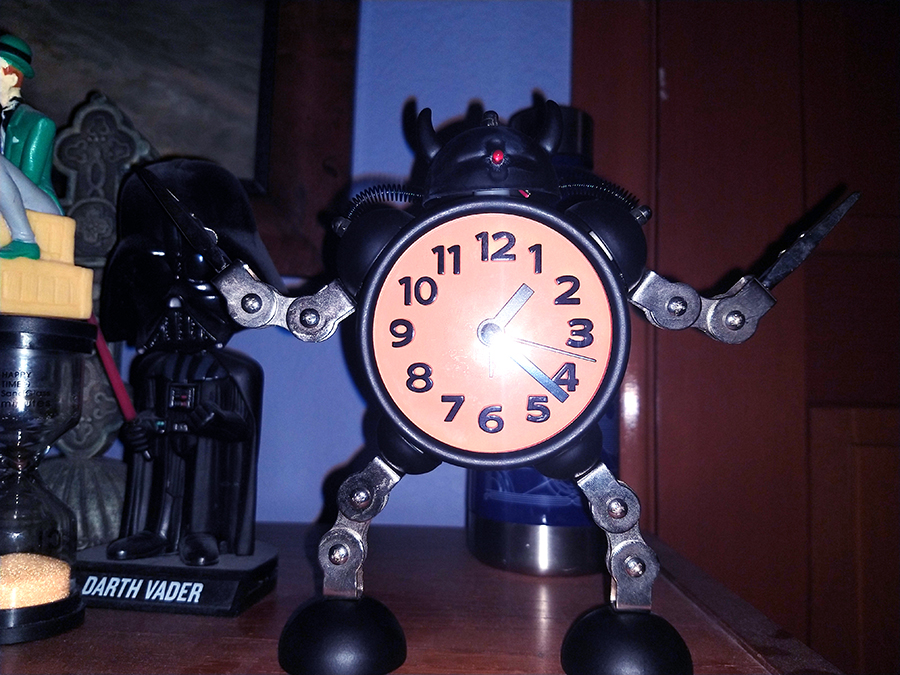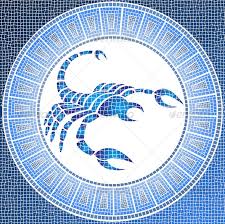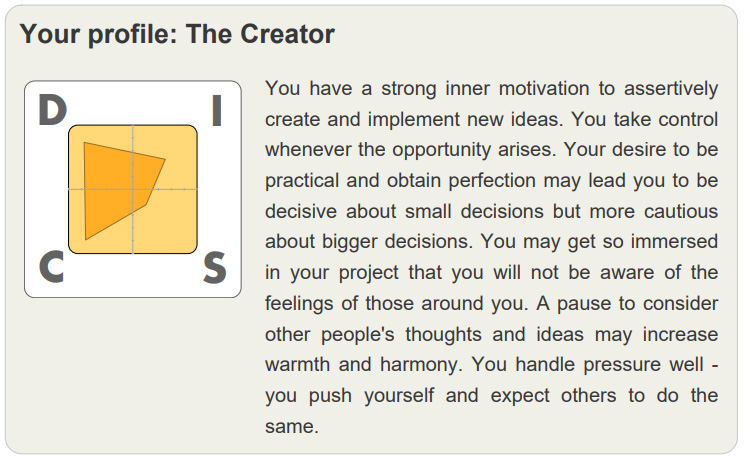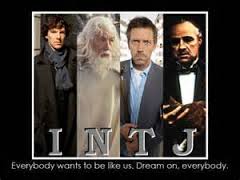It's All About Me
 |
 |
I AM BIPOLAR --- CHESS: ENDGAME
Scorpio and Temperament:

Scorpios are extremely ambitious, persistent and determined which is shown through a power hungry, controlling attitude. Not in a stubborn sense however, because a Scorpio will work for what they want and control will justified reasons. This is obvious to any onlooker. A Scorpio never gives up, they are so determined to reach their goal. The key to this success is their flexibility. They are able to re-survey a situation and take a different approach if necessary. This makes them very adaptable and versatile. Scorpios are fierce competitors, combined with their powers of observation and their excellent memory, they will recall facts and when necessary, bring them to the table at the time of need. They will win justly, with proper facts and arguments to support their thoughts and opinions. Scorpios are excellent at restoring order to a chaotic situation and they are just as capable of manipulating for their own greed and benefit. The un-evolved Scorpio is a very dangerous person because they use their powers to benefit only them and step on other people in order to satisfy their own greed.
Personality of the Rat
The rat has the first position in the Chinese Zodiac. Rats are quick-witted, resourceful and versatile. With strong intuition and quick response, they are always easy to adapt themselves to a new environment. With rich imaginations and sharp observation, rats can take advantage of opportunity to do anything. Rats have strong curiosity, so they tend to try their hands at anything, and they can deal with it skillfully. Ladies belonging to the rat zodiac sign are pretty, smart and lovely. They have quick minds and dexterous hands to learn anything.
As lack of courage and insight, as well as proper command capabilities, rats are not capable to be leaders. Opportunistic and picky as rats are, they do not have great minds, but a narrow view. Rats are kind, but sometimes are impolite to others. People of the rat zodiac sign usually sleep late at night for mice are nocturnal animals.
Sixteen Personality Types - Free Personality Test
INTJ
MORE ABOUT INTJ
Myers-Briggs: Does it pay to know your type?
The INTJ personality type is one of the rarest and most interesting types. Comprising only about 2 percent of the U.S. population (INTJ females are especially rare - just 0.8%), INTJs are often seen as highly intelligent and perplexingly mysterious. INTJ personalities radiate self-confidence, relying on their huge archive of knowledge spanning many different topics and areas. INTJs usually begin to develop that knowledge in early childhood (the "bookworm" nickname is quite common among INTJs) and keep on doing that later on in life.
When someone with the INTJ personality has mastered their chosen area of knowledge (INTJs can find their strengths in several fields), they can quickly and honestly say whether they know the answer to a specific question. INTJs know what they know, and more importantly, they are confident in that knowledge. Unsurprisingly, this personality type can be labeled as the most independent of all types.
INTJs are very decisive, original, and insightful; these traits push other people to accept the INTJ's ideas simply because of that sheer willpower and self-confidence. However, INTJ personalities do not seek nor enjoy the spotlight and may often decide to keep their opinions to themselves if the topic of discussion does not interest them that much.
INTJ personalities are perfectionists, and they enjoy improving ideas and systems they come in contact with. As INTJs are naturally curious, this tends to happen quite frequently. However, they always try to remain in the rational territory no matter how attractive the end goal is. Every idea that is generated by the INTJ's mind or reaches it from the outside needs to pass the cold-blooded filter called "Is this going to work?" This is the INTJ's coping mechanism, and they are notorious for applying it all the time, questioning everything and everyone.
INTJ personalities also have an unusual combination of both decisiveness and vivid imagination. What this means in practice is that they can both design a brilliant plan and execute it. Imagine a giant chess board where the pieces are constantly moving, trying out new tactics, always directed by an unseen hand. This is what the INTJ's imagination is like. An INTJ would assess all possible situations, calculate strategic and tactical moves, and more often than not develop a contingency plan or two as well. If someone with the INTJ personality type starts working with a new system, they will regard the task as a moral obligation, merging their perfectionism and drive into one formidable force. An INTJ will likely immediately and permanently lose respect for anyone who does not have enough talent or simply does not see the point, including the higher ranks of management.
INTJ personalities also often shoulder the burden of making important decisions without consulting their peers. They are natural leaders and excellent strategists, but they willingly give way to others vying for a leadership position, usually people with Extraverted (E) personality types. However, such action can be deceptive and maybe even calculated. An INTJ will retreat into the shadows, maintaining their grip on the most important decisions, and as soon as the leader fails and there is a need to take the steering wheel, the INTJ will not hesitate to act, maybe even while staying in the background. The INTJ personality is the ultimate "man behind the curtain".
INTJs dislike rules and artificial limitations; everything should be questionable and open to reevaluation. They may be idealists (impossible is nothing) and cynics (everybody lies) at the same time. Whatever the circumstances, you can always rely on the INTJ to "fill in" the gaps in the idea. They are most likely to come up with an unorthodox solution.
Generally speaking, INTJs usually prefer to work in the area they know very well. Their typical career is related to science or engineering, but they can be found anywhere there is a need for intelligence, a restless mind, and insight (e.g. law, data analysis or some academic fields). INTJ personalities rarely seek managerial positions; if they do, this is probably because they need more power and freedom of action, not because they enjoy managing people.
Every personality type has many weak spots and INTJs are not an exception. There is one area where their brilliant mind often becomes completely useless and may even hinder their efforts: INTJs find it very difficult to handle romantic relationships, especially in their earliest stages. People with this personality type are more than capable of loving and taking care of the people close to them, but they are likely to be completely clueless when it comes to attracting a partner.
The main reason behind this is that INTJ personalities are both private and incredibly rational. They find it very difficult to understand the complex social rituals that are considered part of the dating game, especially in Western societies. Things like flirting or small talk are unnatural to them; furthermore, INTJs (especially females) tend to see typical attraction tactics (such as feigning disinterest) as incredibly stupid and irrational. Ironically, INTJs are most likely to attract a partner when they stop looking for them; this is when their self-confidence starts shining again. There are few things that are more attractive than the unrelenting self-confidence that INTJs are known for.
DISC Personality Test
Take the Test


Moderates
Moderates reflect the middle of the road of public opinion in America. They tend to be engaged in their communities, often volunteer, and are interested in current affairs, but uncomfortable with the tribalism of politics. They tend to be socially conservative and religion plays an important role in their lives. They feel conflicted on certain social justice issues, including same sex marriage, and they are slower to embrace change. They mostly disapprove of Donald Trump as president and overwhelmingly believe that the country is headed in the wrong direction. Among those planning to vote in the 2018 midterms, they favor Democrats over Republicans by a margin of 4-3. Yet they also think that political correctness has gone too far. They dislike the activism and what they see as extremism of both progressives and conservatives. While they think feminism has gone too far, they also recognize sexual harassment as an important issue. They support the notion of sanctuary cities and want undocumented immigrants to have better treatment. They tend to seek less radical solutions than Devoted or Traditional Conservatives, such as building a border wall. They are worried about the state of America and feel that American identity is slipping away.
The Hidden Tribes of America
- Take Quiz

Introvert
You are an introvert, truly. You desperately crave for friendship, but find it hard to make friends - much less maintain more than a couple of friendships at any given time. You are actually more rare of a personality type than extroverts and omniverts. People think of you as shy, weird, aloof, and maybe even judgmental. However, for those few who do break into that rock hard shell of yours, they tend to be lifelong friends. You find it easy to have relationships with those people - but only if they continue the effort. Once a friend relies on you to maintain the friendship, it quickly downgrades into a mere acquaintanceship. People have to make an extra effort to be your friend because of your social inactivity. You want to be social and love the thought of being social, but your fear of what people think and your inability to generate small talk leads you to not interact with others beyond necessity. You are the one who sits silently and keeps to themself. You are always kind, friendly, and polite, but find social interaction tiring and downright nerve-wracking sometimes. You feel the most comfortable in situations and places where you can just blend in quietly, but still be a part of it all.
Are You Naturally An Introvert, Extrovert, Or Ambivert?

Am I Part Of The LGBTQ+ Community?

You are unaware of your shadow self
You are very unaware of your shadow, and therefore in danger of occasional
explosive behaviour or suppressing your potential. You have very black and
white opinions on various issues, or about certain people, and do not see
this
has any connection to you.
THE HEXACO PERSONALITY INVENTORY - REVISED
The Art of Thinking - The "Flat" Profile

The person with a flat InQ profile is likely to be less predictable, less intense, and probably less recognizable than people with strong stylistic preferences. He or she may have more options, and be more "adaptable" in the broad sense. The problem is that the behavior arising out of strong stylistic preference often lends a kind of identity or recognition by others to a person, which may not be as clear for the person with a flat profile.
On first glance one might assume that the person with a flat profile is little different from a Pragmatist. But there is an important difference. Depending on the strength of his or her preference, the Pragmatist uses the icremental, contingent, "whatever works" approach as purposeful, conscious strategy more often than not, while the person with a flat profile uses any set of strategies either situationally or more or less at random.
The problem, if there is one, occurs at the behavioral level. There is evidence that charisma is associated with strong InQ preferences. Our experience confirms the notion. People with high personal impact, who are more or less predictable, and who stand out in a group (either postively or negatively) tend consistently to have strong Style of Thinking preferences. The image of the individual with a flat profile may be one of a "nice" person who gets along with everyone, and who goes along with the flow of events. Whether or not that is seen as a problem or a liability by the individual depends on what one values.
STYLES OF THINKING

